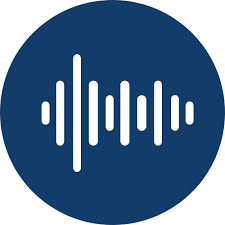Have you struggled to find the niche for your podcast?
Today’s guest is Brain Kane from the The Real Brian Show, former host of ProfitCast and ArrowSquad. When he started The Real Brian Show, he struggled with the whole “niche” issue and, as a result, struggled with how to define his podcast to others.
Listen to his podcasting journey:
[02:00] As a kid, Brian wanted to be a morning DJ, but when he began with radio, interest in radio was fading, and it didn’t pay well. He tried figuring out podcasting in 2013, and discovered Cliff Ravenscraft’s Podcasting A to Z which made it easy. Joshua first found Brian when Dave Jackson and Daniel J. Lewis separately mentioning ProfitCast. Joshua and Joshua connected regarding sponsorship possibilities.
[04:30] How (or why) did Brian start podcasting? His first show was “Backstage Pass” (interviewing hip-hop artists) and then “TV Talk” (hosting podcasts about TV shows paying $80-90/hour). Brian took another course in 2014, researching how to grow an audience. Everyone charged for “the secret” and Brian interviewed people who had succeeded monetizing their podcast.
[07:20] ProfitCast lasted 110 episodes and 2 years. None of Brian’s peers were making the amount of money they wanted with their shows. Ironically, a published author and public speaker Brian listened to was not interesting. After 50 episodes, the guests were dispensing the same recycled advice. He was not seeing a massive impact and felt something was missing.
[11:20] The successful people Brian was interviewing were not sharing everything, either on purpose or didn’t know — they were lucky. Podcasting can be like network marketing: if you’re good at it and get in at the right time, you can be successful. They’re extroverted AND good at selling. They claim anyone can be successful at podcasting (or network marketing) — which isn’t entirely true. Some people will never be “that good” at podcasting.
[13:00] The people at the top have a very unique combination of skills: charisma, extroversion, entertainment, sales, and marketing. If you don’t have that unique combination, you must get creative and succeed with your own skillset. However, don’t try to emulate the greats like John Lee Dumas and Cliff Ravenscraft. Observed what worked for them and apply it within your own personality.
[14:50] By 2016, podcasting was noisy compared to 2008, and Brian felt there was nothing new to say on ProfitCast. Since then, he’s learned a few new things he could share. He’s currently learning about achieving celebrity status, which can succeed in acquiring loyal listeners. Once you create a course or run advertising, you’ll get the money.
[16:30] Many podcasters feel they’ve said everything there is to say but feel the pressure to keep going. Brian announced the ending and explained the timeline of that final wrap-up. Some podcasters get frustrated/discouraged and either put out junk or they pod-fade.
[18:45] If Brian ever restarted ProfitCast, he wouldn’t be as nice with guests. He’d push for the answer he was looking for. Also, Brian isn’t a niche person. For some reason, podcasting has become about niches. In any other form of media (i.e. Shark Tank), they hate niches. Brian is a Type 7 (Enthusiast) enneagram with a multitude of interests/talents and gets bored doing the same thing for too long. He usually won’t finish a book because it doesn’t keep his attention.
[21:30] After ProfitCast, Brian decided he was done talking about podcasting. He also can’t talk about one single TV show anymore. Variety in your life is okay.
Three years into the Real Brian Show, it’s been very tied to him as a person. He began the show wanting to talk about more but overthought it every step of the way. Just starting the radio station at the high school, morale went up. He’s made people smile and helped them have a better life. People told him it needed more, but that led to further complications.
[25:50] The Real Brian Show was created to talk about a variety of things, and help people have a happier day. The side aspect was “Unleashing the Superhero” to embrace who you really are and be continually better. They also embraced the idea of nerding out on your passions without apology.
His big mistake was listening to too much advice and adjusting based on what others thought he should do. Brian has been bringing things back to his basic core elements plus his beliefs for the show: have a better day, and smile.
[29:20] Adults get married, find a life of responsibilities, and they stop having fun. It’s time to get balance in life. Also, follow your own journey. For example, Instagram may work well for others, but not you. Instagram may also work for you at a different point in time.
[31:10] Brian is intentionally trying to break the mold. He observes what others are doing, what’s working, but is his own trailblazer. He’s not a teacher and wants to create a show that is valuable.
[32:30] Podcasters are taught to “get the numbers up” into tens of thousands of listeners to get advertising. However, he has loyal listeners — his friends he made because of the show. Just because people say you should niche (or teach) doesn’t make that you should. Define what success looks like for you — it’s NOT always money or thousands of listeners. Are you influencing people and creating friendships? Do your words make an impact and change lives? You don’t hear that message enough.
If you found this podcast useful or interesting, please share it with a friend.
Links/Resources:
The Real Brian Show: RealBrianShow.com (The Voice of the Nerdy Eclectic)
Daniel J. Lewis, The Audacity to Podcast: https://theaudacitytopodcast.com/
